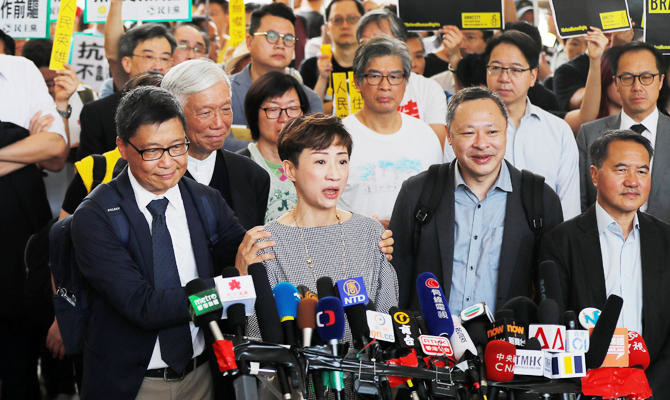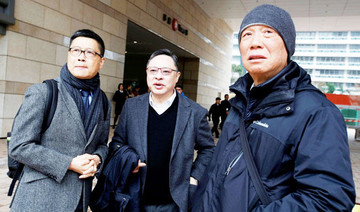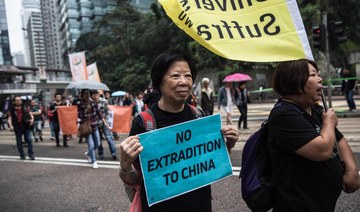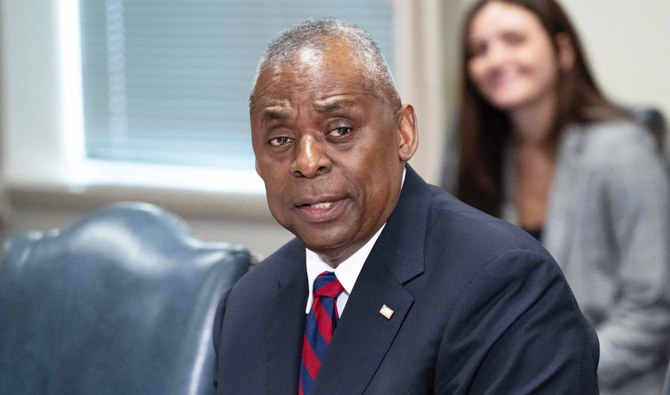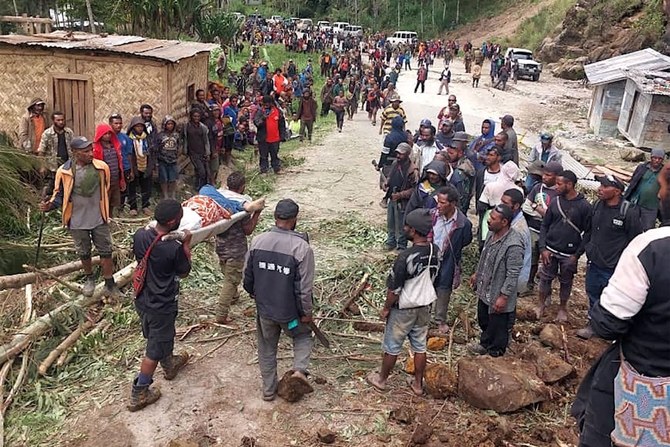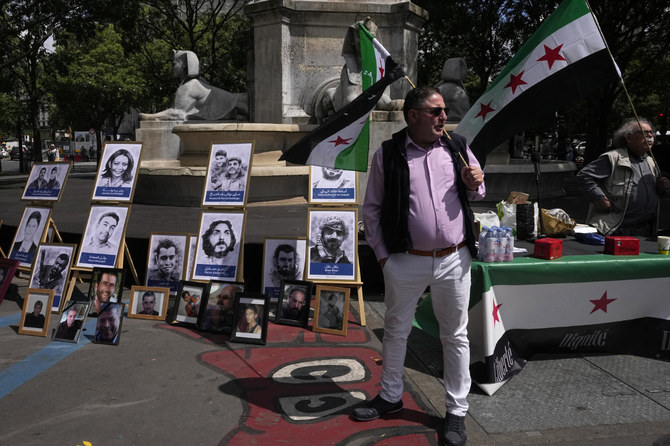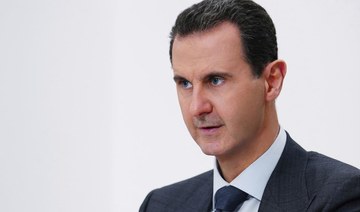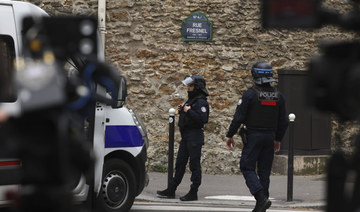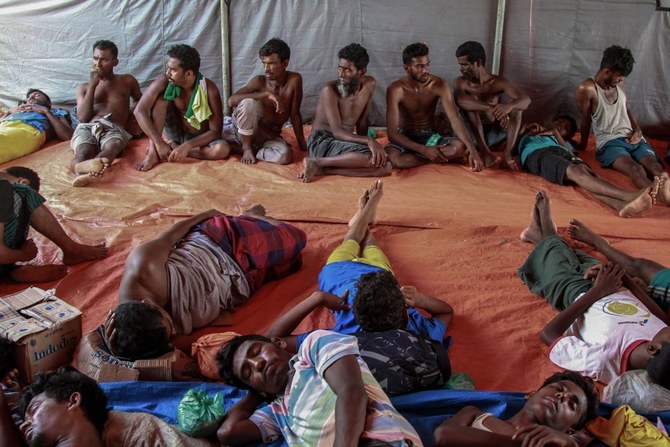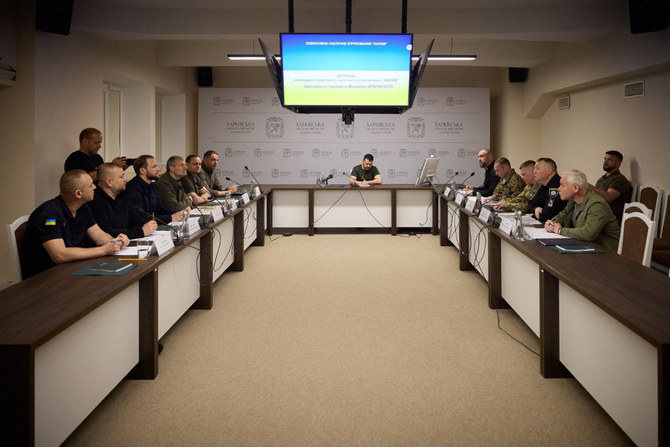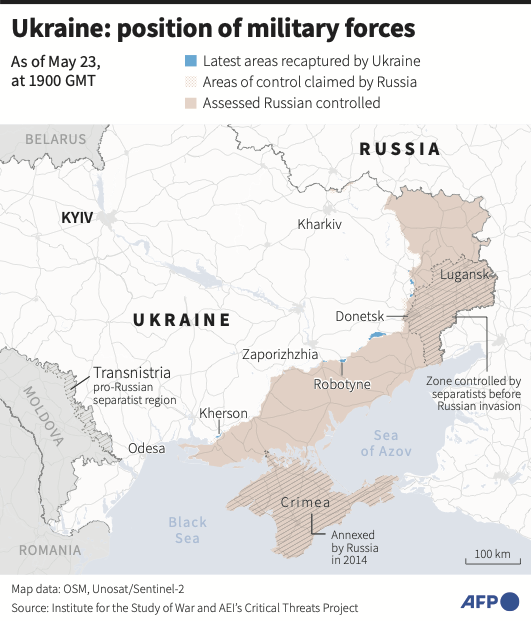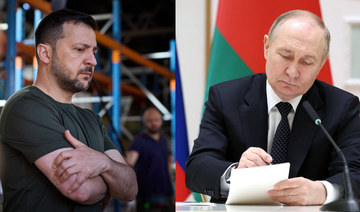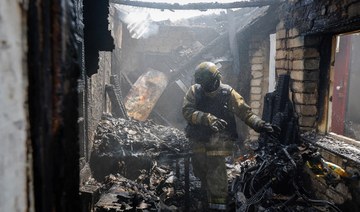HONG KONG: A Hong Kong court found leaders of the 2014 “Occupy” civil disobedience movement guilty on Tuesday of public nuisance charges during the mass protests, in a landmark verdict that comes as the China-ruled city’s freedoms come under strain.
Scores of supporters clapped in support of the nine defendants including a law professor, two lawmakers and former student activists, after the judge delivered his verdict following a trial that critics say highlights shrinking political freedoms in the former British colony.
Three of the defendants accused of playing a leading role in planning and mobilizing supporters during the 79-day street occupations in 2014 — Benny Tai, 54; Chan Kin-man, 60; and retired pastor Chu Yiu-ming, 75; were found guilty of conspiracy to commit public nuisance.
Tai and Chan were also found guilty of incitement to commit public nuisance. They appeared calm after the verdict was delivered, and Chan bowed to supporters, applauding them outside the court. The trio had pleaded not guilty to all charges, which each carry a maximum seven years jail.
Tai, speaking to Reuters earlier, said they would continue the struggle for full democracy.
“The reason that we committed civil disobedience is because we want justice for Hong Kong people.”
In a summary of his judgment, Justice Johnny Chan noted that while the concept of civil disobedience is “recognized in Hong Kong,” it wasn’t a defense to a criminal charge.
“The offense of conspiracy to cause a public nuisance does not have the undesirable effect of curtailing or suppressing civil disobedience at its formation stage or suppressing human rights as the defendants contended,” the summary read.
Since the city returned from British to Chinese rule in 1997, critics say China has reneged on its commitment to maintain Hong Kong’s high degree of autonomy and freedoms under a co-called “one country, two systems” arrangement.
In the nearly five years since the Occupy protests, democracy activists, diplomats and business leaders have expressed grave concerns over what they say is Beijing’s tightening grip on the city’s freedoms.
Pro-democracy lawmakers have been kicked out of the legislature, a pro-independence party banned, and democracy advocates barred from contesting local elections. A senior Financial Times editor was also effectively expelled from the city after he hosted a talk with a pro-independence activist at the Hong Kong Foreign Correspondents’ Club.
The six other defendants include pro-democracy legislators Tanya Chan and Shiu Ka-chun, two former student leaders Eason Chung and Tommy Cheung, activist Raphael Wong, and veteran democrat Lee Wing-tat, were also found guilty of at least one public nuisance charge.
No sentences were immediately given by the judge.
“NAIVE“
The nine defendants were accused of inciting and mobilizing protesters during the demonstrations that sought to pressure Beijing to allow full democracy.
Hundreds of thousands of people blocked major roads in several parts of the global financial hub for 79 straight days in late 2014, in one of the boldest populist challenges against Beijing in decades.
The demonstrators were finally cleared away by police, having won no democratic concessions from the government.
David Leung, the director of public prosecutions, had earlier argued that Tai, Chan and Chu were the main conspirators who had begun planning the protests a year in advance. He also said the protests had caused “unreasonable” public disruptions over nearly three months.
A public opinion poll by the Chinese University of Hong Kong that was cited in court found that of some 1,200 protesters polled during the demonstrations, 87 percent said they had participated to “protect Hong Kong’s liberty.”
The 268 page judgment noted, however, that: “it is naive to suggest that a concession to introduce the form of universal suffrage ... could be made by the government overnight with a click of the fingers, it is equally naive to suggest a mass protest of tens of thousands of people could be dispersed overnight even if a positive response were to come from the authorities.”



